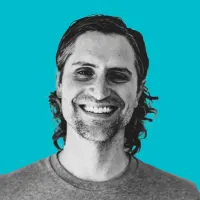This website uses cookies, belonging to us or third parties, to improve your experience, optimize performance and our services, understand your usage through analytics, and personalize advertising tailored to your interests on our site and third party sites. By continuing to use our site, you consent to such use of cookies. Please visit our Terms of Use and Privacy Policy where you can find out more about cookies and how to manage them.



Finding moments of complete rest and renewal might seem like a luxury in our fast-paced world. However, we may achieve deep relaxation and get a variety of advantages by regularly practicing Yoga Nidra, a state of conscious sleep. Yoga Nidra, also known as "yogic sleep," enables us to achieve a deep sense of serenity and awakens our intrinsic healing potential.
A type of guided meditation known as Yoga Nidra takes us through numerous stages of relaxation before lulling us into a peaceful slumber. To relieve physical stress and exhaustion, we are encouraged to lie down comfortably and relax every muscle in our body. As we continue to exercise, we establish a peaceful state of mind while studying the levels of the mind. In this totally relaxed state, the soul may connect with its true essence, the body may heal and replenish, and the mind may find tranquility.
Yoga Nidra acts as a doorway to inner harmony and emotional healing. We explore and acknowledge our feelings during the practice without passing judgment or showing resistance. We may let go of and heal emotional scars within ourselves, which will lower our stress and anxiety levels. Yoga Nidra helps us become more self-aware so we can examine our thoughts and emotions without getting caught up in them. We get a feeling of emotional stability and resilience which promotes a deeper sense of internal harmony and well-being.

Finding moments of complete rest and renewal might seem like a luxury in our fast-paced world. However, we may achieve deep relaxation and get a variety of advantages by regularly practicing Yoga Nidra, a state of conscious sleep. Yoga Nidra, also known as "yogic sleep," enables us to achieve a deep sense of serenity and awakens our intrinsic healing potential.
A type of guided meditation known as Yoga Nidra takes us through numerous stages of relaxation before lulling us into a peaceful slumber. To relieve physical stress and exhaustion, we are encouraged to lie down comfortably and relax every muscle in our body. As we continue to exercise, we establish a peaceful state of mind while studying the levels of the mind. In this totally relaxed state, the soul may connect with its true essence, the body may heal and replenish, and the mind may find tranquility.
Yoga Nidra acts as a doorway to inner harmony and emotional healing. We explore and acknowledge our feelings during the practice without passing judgment or showing resistance. We may let go of and heal emotional scars within ourselves, which will lower our stress and anxiety levels. Yoga Nidra helps us become more self-aware so we can examine our thoughts and emotions without getting caught up in them. We get a feeling of emotional stability and resilience which promotes a deeper sense of internal harmony and well-being.
You May Also Like

Thomas McConkie


